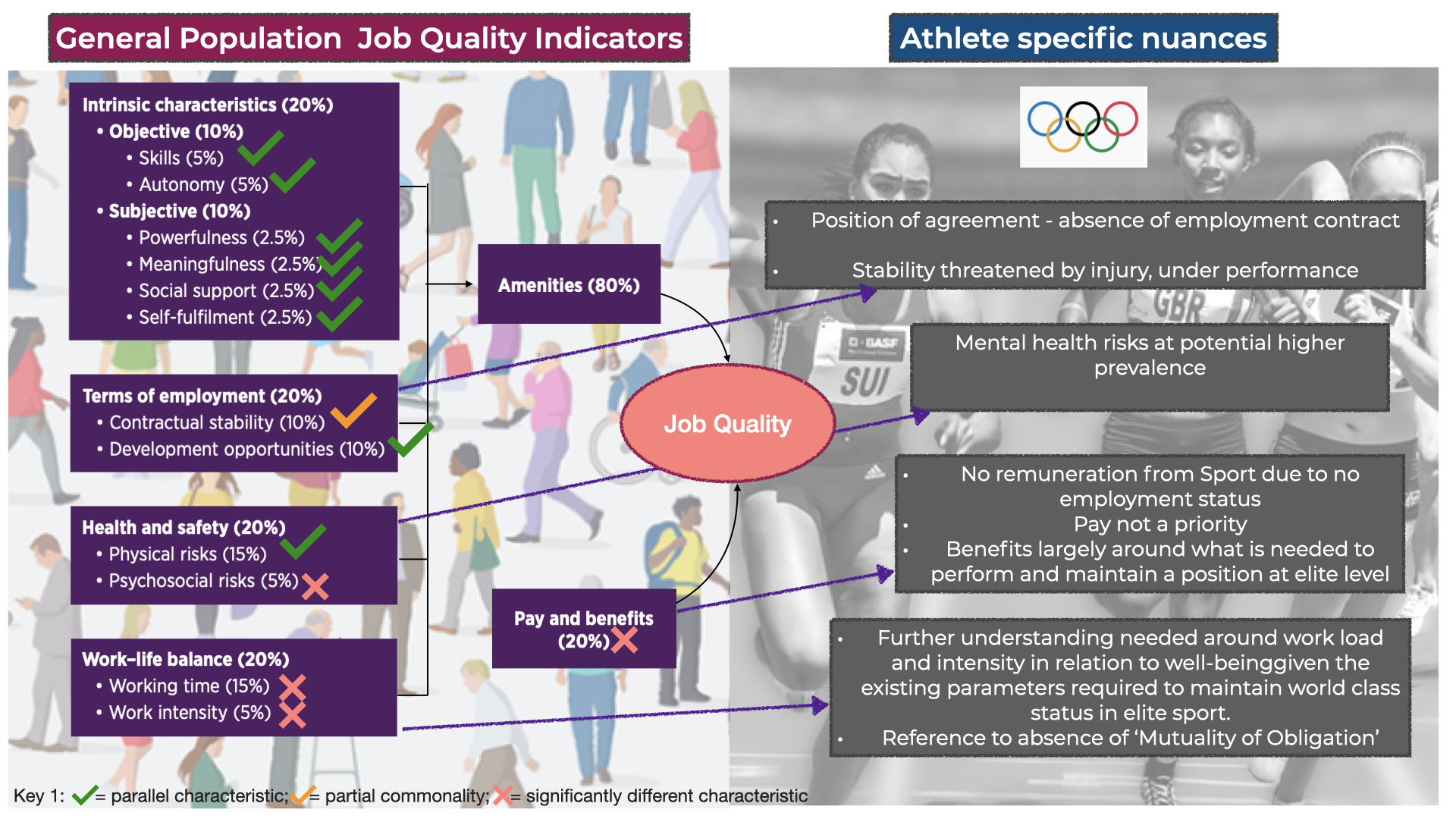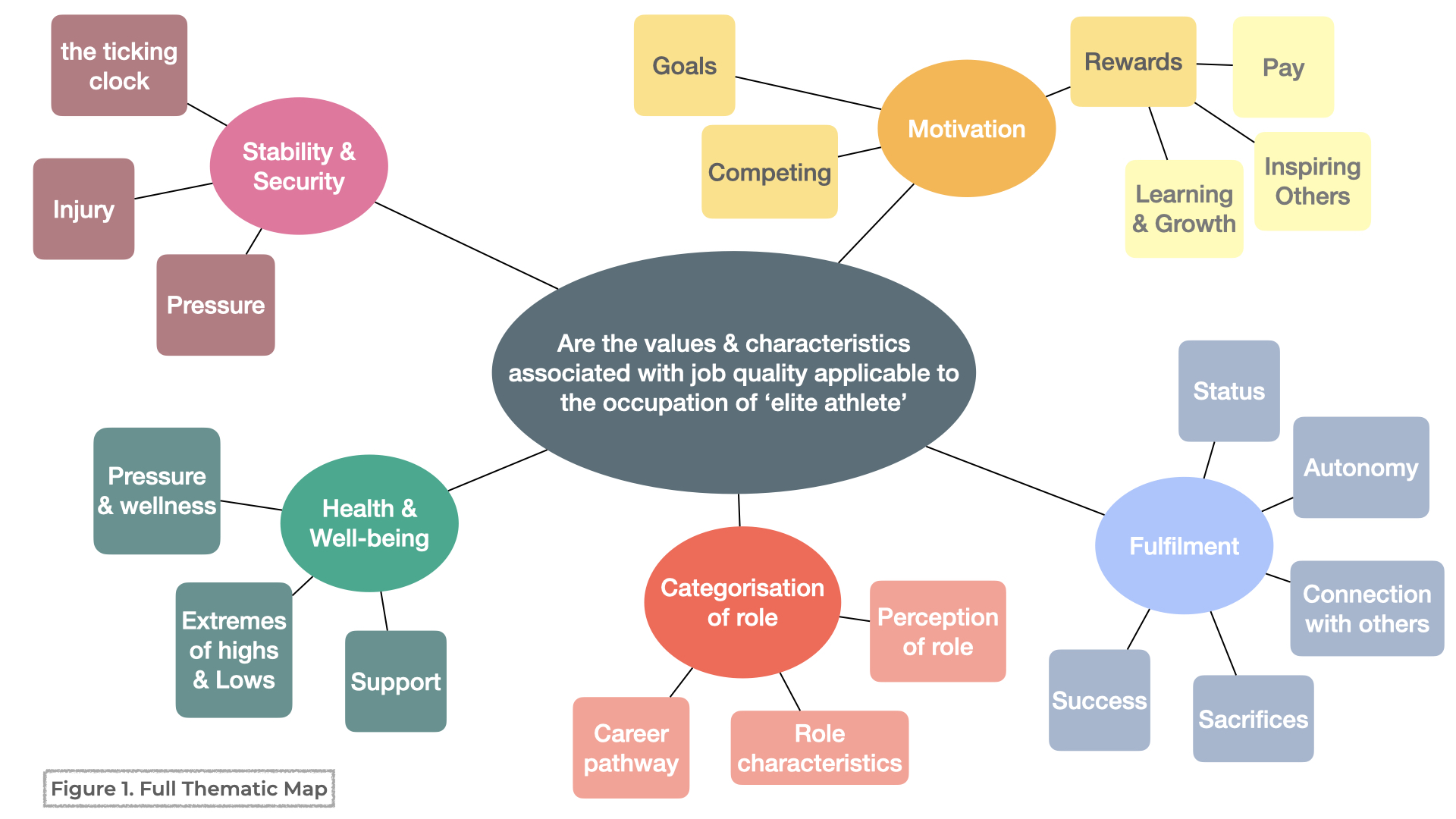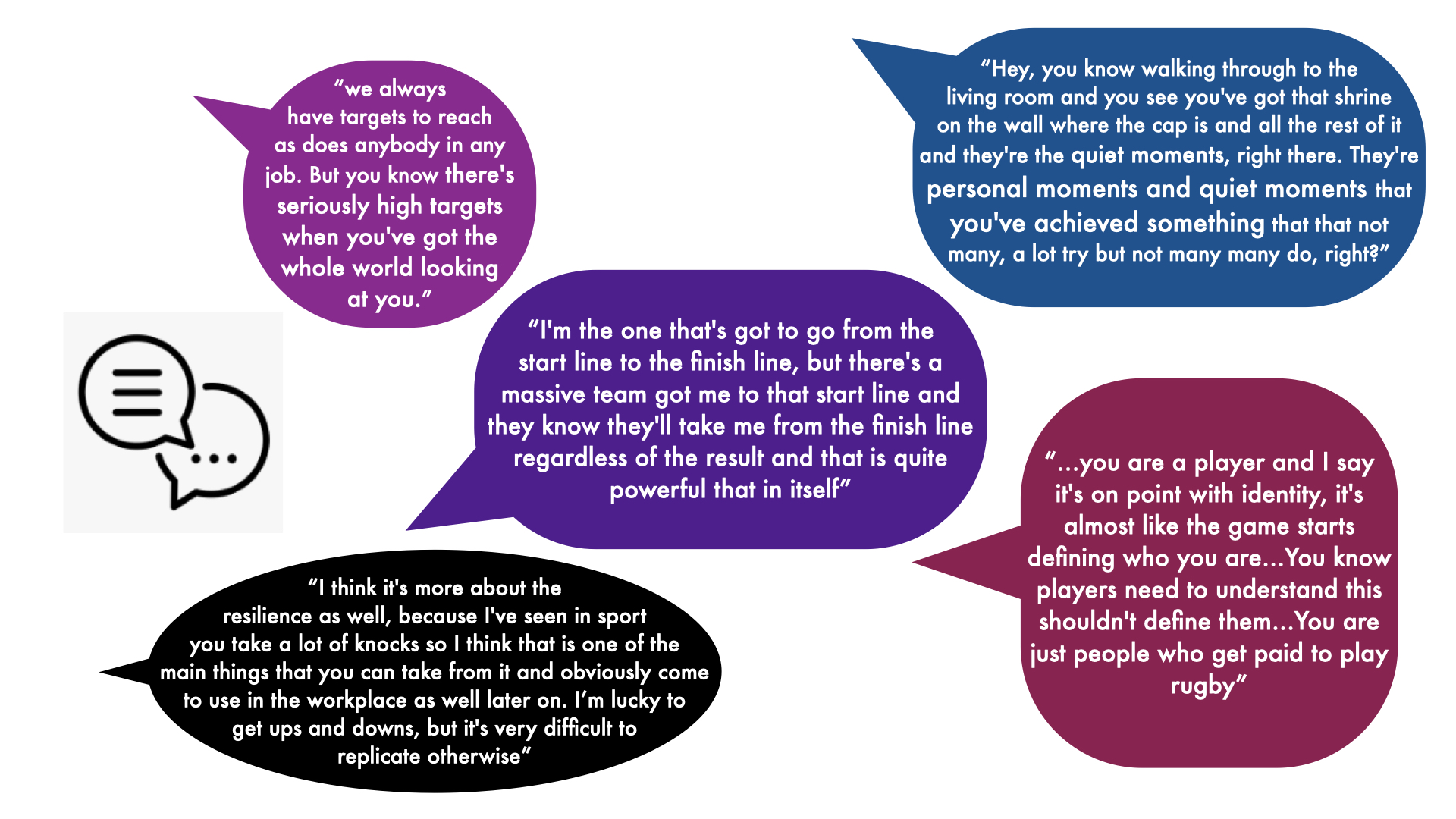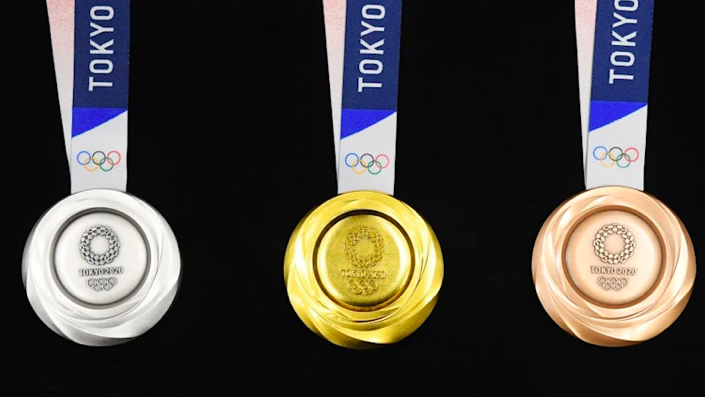Major project
Are the Values and Characteristics associated with Job Quality applicable to… [Read more]

Mapping of Indicators from Munoz de Bastillo et al's Job Quality Index against conceptual ideas specific to elite athletes with reference to parallel, partial and differing characteristics
The aim of this study was to explore athletes’ values and beliefs towards their occupation as full-time elite athletes operating in the high-performance sport environment. There is a strong evidence base around ‘job quality’ and the component and characteristics that are associated with this in the general population but little with regards to a valid and reliable measure of job quality with specificity to occupation type. With respect to the existent research in the field of job quality modelling, an attempt is made to reflect on characteristics that resonate with elite athletes from the study. Similarities and differences have been highlighted against Munoz de Bastillo et al’s model (2009) in order to understand the potential gaps, relative to the elite athlete, in the current models.

An Interpretive Qualitative Cross-Sectional Design was used with thematic analysis producing 5 main primary themes
Data for the current study were obtained by means of semi-structured interviews with elite athletes drawn from both Olympic and Paralympic sports. Given that this study is exploratory in nature, the interview questions were driven, to a degree, by a-priori codes in the existing body of job-quality research. 5 main themes with sub-themes emerged and were explored;
1. Categorisation of the role which related to the lived experience and perceptions of athletes around what they do, what their role entails and whether they connected with the concept of having a job.
2. Fulfilment relates to the experiences associated with a fulfilling career from the perspective of an elite athlete.
3. Motivation relates to incentives to sustain a career in elite sport
4. Stability & Security explores experiences related to employment security as defined by the general population.
5. Health & Wellbeing relates to the intense physical and mental demands know to be consistent with elite athletes.

Visualisation of the tripartite relationship between UK Sport, Athlete and NGB
The aim of this study was to explore athletes’ values and beliefs towards their occupation as full-time elite athletes operating in the high-performance sport environment. All participants in the study identified with their role being defined as a ‘job’ and an ‘occupation’, with parity for the majority of known characteristics of ‘job quality’ as understood in the extant literature (Coats & Lehki, 2008; Marmot, 2004; and Munoz de Bustillo et al,2009). The concept of ‘going to work’ every day was apparent, despite the absence of a contract of employment. Instead, a complex tripartite relationship exists between athlete, UK Sport and their governing body to commit to a planned bespoke performance program. Within this agreement came the commitment to work hard or train hard for themselves and for the success of their sport. Volume of hours devoted to work, or training was mutually agreed and, in the absence of contractual employment, this took an interesting perspective. Often, this time commitment was far beyond typical ‘norms’ for working, for example, the working time directive recommends you cannot work more than 48hrs per week (Health & Safety Executive, 2021). Athletes would typically train every day with competitions at weekends, substantial volume of travel away from home, with typically unsocial hours alongside this. The driver, being a commitment to ‘being the best in the world’ which provided a strong motivational force that elicited behaviours that were self-led and, largely, autonomous in nature.

Some beautiful quotes and insights from athletes interviewed.
Results correlated with known indexes of job quality in the general population with parity in understanding and acceptance of security, work characterisation, autonomy, rewards and importance of relationships. Significant importance was placed on mental health, identity and stressors specific to the elite sport environment.

Conclusion
Measurement of job quality remains difficult with the absence of employment in this athlete group therefore a new paradigm may be needed to understand this more deeply. The study found many characteristics, considered to be significant with regards to job quality, correlated with the experience described by elite athletes. The main exceptions to this were; terms of employment, pay and benefits and work-life balance in terms of time and intensity. Despite the extensive body of research pertaining to mental health in this group, there remain questions in terms of pressure related to wellness in the context of performance. Furthermore, what strategies are in place to tackle the duty of care issues, like bullying and discrimination. If the term ‘job’ was removed with a focus on the component parts associated with ‘occupation quality’ perhaps a new paradigm could be created specifically to the elite athlete group.
Rebecca Joyce
Innovation Consultant with roots as a Chartered Physiotherapist. Passionate about human endeavour, behaviour and the power of human stories.
Rebecca currently works for The English Institute of Sport as an Olympic Sport Lead Innovation Specialist. She is an experienced and accomplished leader of cross-functional teams with the purpose of improving performance in pursuit of medals with Olympic and Paralympic athletes. With over 12 years of experience in high-performance sport, her principal strengths lie in managing unique projects with a focus on both problems solving and the design and implementation of solutions with the athlete firmly at the centre. A solid foundation in Sports Medicine, Ergonomics and Human Centred Design has provided some unique opportunities to work on a wide variety of projects. Key achievements have come from taking considered leaps to pursue dreams and aspirations, all of which have brought me to where I am now. Undertaking an MSc in Ergonomics and Human Factors is no exception to this.
Major project
Are the Values and Characteristics associated with Job Quality applicable to the Occupation of Elite Athlete: An Exploratory Study
Awards
2018 winner of the UK Sport Innovation award for significant impact on female athlete health specifically around the applied research in saddle health in British Cycling.
2018 Loughborough University Diploma Ergonomics and Human Factors